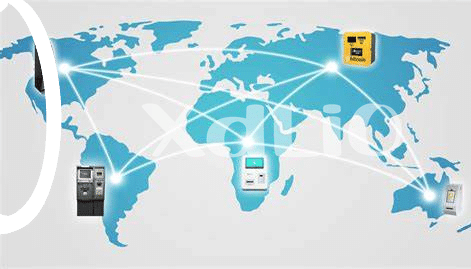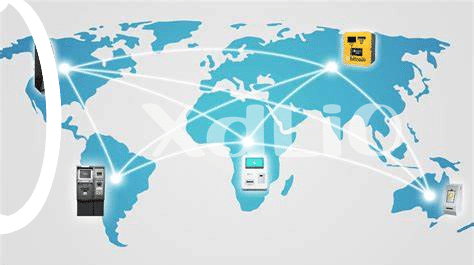Evolution of International Payments 🌍

The way we send and receive money across borders has transformed dramatically over the years. From the traditional methods of wire transfers and checks to the rise of digital payment systems, the evolution of international payments has been nothing short of revolutionary. With the increasing globalization of economies and the interconnectedness of businesses worldwide, the need for faster, cheaper, and more secure cross-border payment solutions has become paramount. This evolution has paved the way for innovative technologies like blockchain and cryptocurrencies to step into the spotlight, offering new possibilities and disrupting the traditional financial landscape. As we look toward the future, the evolution of international payments continues to shape the way we conduct business on a global scale, opening up new opportunities for efficiency and inclusion.
Bitcoin’s Impact on Traditional Banking 💰
Traditional banking institutions are facing a paradigm shift with the rise of Bitcoin as a disruptive force. With its decentralized nature and borderless capabilities, Bitcoin is challenging the traditional banking system by offering faster and more cost-effective cross-border payment solutions. This shift is forcing banks to reconsider their operational models and adapt to the changing landscape of financial transactions. As customers become more accustomed to the convenience and efficiency of cryptocurrency transactions, traditional banks are under pressure to innovate and provide enhanced services to remain competitive in the evolving financial ecosystem. The impact of Bitcoin on traditional banking is not just about technology; it signifies a fundamental shift in the way we perceive and conduct financial transactions on a global scale.
The emergence of Bitcoin as a viable alternative for cross-border payments is reshaping the traditional banking sector by highlighting the inefficiencies and limitations of the current system. As more individuals and businesses start embracing Bitcoin for international transactions, banks are compelled to reevaluate their strategies and offerings to meet the evolving demands of their customers. This transformation is not just about the adoption of a new technology; it signifies a broader shift towards a more inclusive and accessible financial system that transcends geographical boundaries. Despite the regulatory challenges and uncertainties surrounding cryptocurrencies, the impact of Bitcoin on traditional banking is undeniable, paving the way for a more connected and efficient global payment ecosystem.
Regulatory Challenges and Opportunities 📜

Navigating the realm of cross-border payments in Peru presents a dynamic landscape of regulatory challenges and opportunities. Regulatory bodies strive to strike a delicate balance between fostering innovation and safeguarding financial stability. The evolving nature of digital currencies like Bitcoin introduces complexities in compliance frameworks, urging policymakers to adapt swiftly to technological advancements. Moreover, the regulatory environment in Peru offers a platform for collaboration between authorities and industry stakeholders to harness the potential of blockchain technology for seamless cross-border transactions. This paradigm shift underscores the imperative for a regulatory framework that nurtures the growth of Bitcoin while addressing potential risks and ensuring consumer protection.
Adoption and Acceptance in Peruvian Market 🇵🇪

In the Peruvian market, the adoption and acceptance of Bitcoin is steadily gaining momentum. More businesses and individuals are exploring the benefits of using digital currencies for transactions, leading to a shift in the traditional financial landscape. With the increasing awareness and ease of access to cryptocurrencies, Peru is witnessing a growing interest in utilizing Bitcoin for daily payments and remittances. This trend is not only reshaping the local economy but also opening up new opportunities for cross-border transactions and financial inclusivity. The future looks promising as Peru embraces the digital currency revolution.
Using Bitcoin for international remittances in Panama has showcased the potential for leveraging digital currencies in streamlining cross-border payments.
Tech Advancements Making Transactions Easier 📲
In the ever-evolving landscape of cross-border payments, technology advancements play a crucial role in making transactions easier than ever before. Innovations in blockchain technology have paved the way for faster, more secure, and cost-effective international payments. Mobile wallets and digital payment platforms have also streamlined the process, allowing users to transfer funds with just a few taps on their smartphones. These advancements in tech not only enhance the speed and convenience of transactions but also contribute to increased financial inclusion, benefiting individuals and businesses alike. Efforts to make cross-border payments more efficient continue to drive the development of new technologies, promising a future where sending money globally is as simple as sending a text message.
Potential Future Trends and Predictions 🔮

When looking towards the future of cross-border payments, potential trends and predictions show a shift towards increased blockchain integration and the emergence of more streamlined payment solutions. As technology continues to advance, we can expect improved security measures, faster transaction speeds, and greater accessibility for individuals and businesses alike. This evolution may pave the way for innovative use cases and wider adoption of digital currencies like Bitcoin. Stakeholders in the financial sector will likely need to adapt to these changes to stay competitive and provide enhanced services. Along these lines, the use of Bitcoin for international remittances in Paraguay has shown promising results, similar to the growing trend in Norway (using bitcoin for international remittances in Norway).
